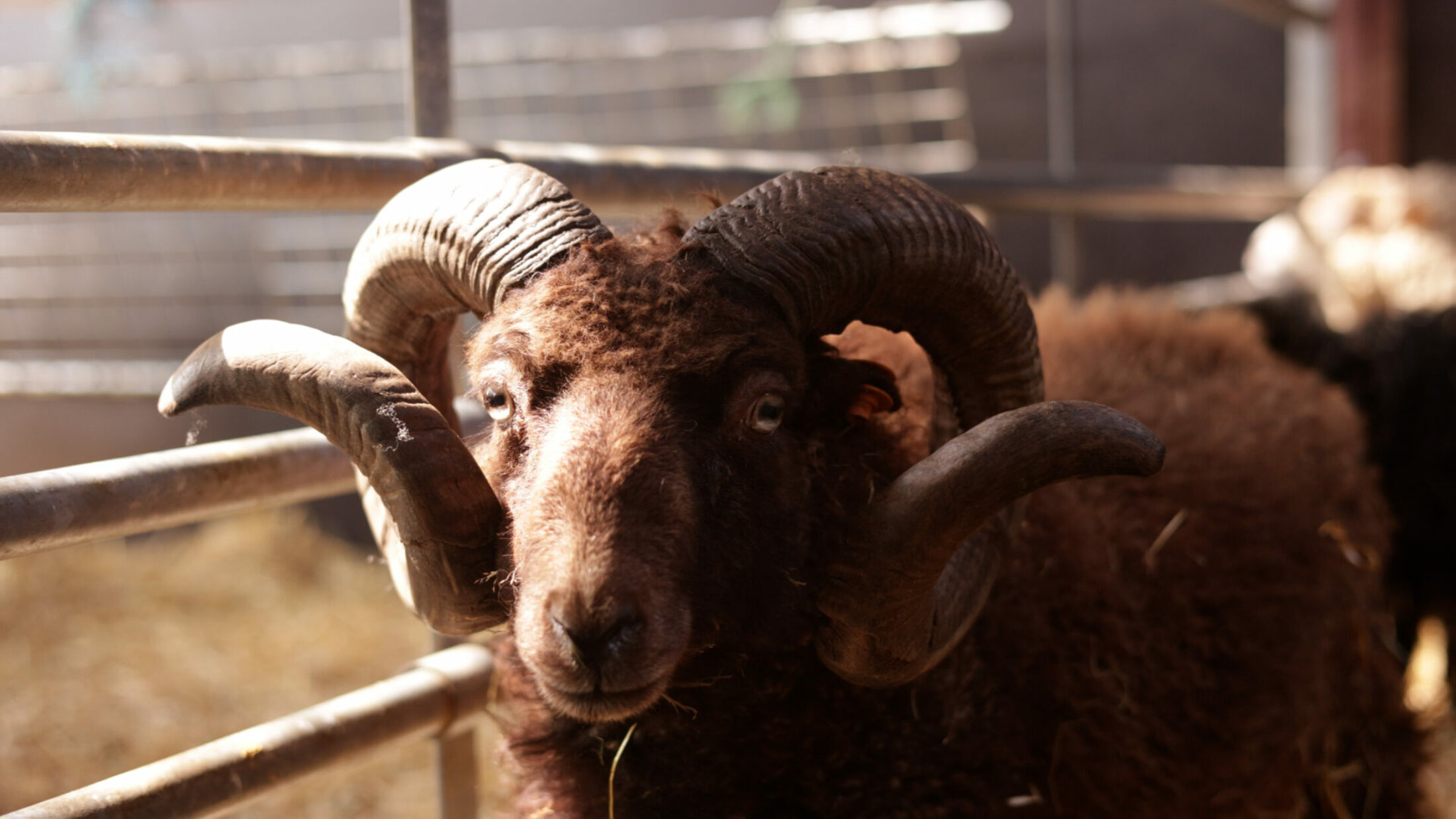The shelter rescuing animals from suffering


“Imagining a two-and-a-half-year-old horse being sent to slaughter simply for having galloped instead of trotting during a trotting race was what got me involved in animal rights,” explains Christelle Denamur, co-founder of the shelter Equi’Chance.
At the time, this animal rights activist was looking for a place to house ‘reformed’ horses (who didn’t meet the standards required to compete). Whilst searching around the southern parts of the Metropolitan Area, she and her husband found an old farm surrounded by meadows, located in the vicinity of Romedenne (Philippeville).
Very soon, in addition to the horses, the farm decided to take in other animals that were in danger. “After watching a documentary, I learned that there was a shortage of places in shelters for mistreated animals. This was when we decided to take in small farm animals too,” explains Christelle.
Today, the shelter houses 20 horses, 2 cows, 50 sheep, 16 goats, 13 cockerels, 3 pigs and more.

Animals that have been abandoned or seized by the police
The animals that arrive at the shelter are in a state of suffering. “Some animals have been abandoned by their owners. For example, we have these small Asian black pigs. People adopt them when they’re small. When the pigs grow, they become very large. This is when some owners decide to release them into the wild, because of the space they are taking up.”
Other animals arrive under a police order. “Generally, neighbours contact the police to report animal abuse. Once we have a court ruling, we go in and save the animals. You see some appalling situations: animals are locked up, some of them haven’t been fed or ever cared for… .”

Cared for 100%
As soon as they arrive at the shelter, a vet examines the animals and they are placed in quarantine. They are cared for, fed and housed according to their needs.
Christelle knows the history of each and every animal. “This horse went blind. Its owner didn’t provide it with the necessary care when it was experiencing an eye problem and so it lost its sight through negligence. Today, the horse has made friends with a donkey whose feet grew crooked. The then-owner never looked after him. These two never leave each other’s sides: the donkey guides the horse, and they keep each other company.”
She views every animal as unique. “I recognise every single one of the fifty sheep: they all have their own unique features and their own story.”

As soon as the animals have been restored to health, they are available for adoption. “For each adoption, I personally travel to the new home to look at the space the animals will be living in. I talk to the adopting family about animal welfare rules. I want to be absolutely certain that they are going to a good home.””
Animal rights awareness
In addition to taking in the animals, the shelter has a second essential purpose in Christelle’s eyes: it raises awareness among the public at large of the plight of animals. One Sunday afternoon each month, visitors are welcome to come and look around. “People come here out of curiosity. They like to see and touch animals that they don’t usually get to see up close, such as pigs or cows.”

The shelter also draws attention to the problematic issues of intensive breeding, slaughter, the long-distance transportation of animals, etc. “Cheap wool often comes from the industrial farms of Australia and New Zealand. The farmers sometimes mistreat their animals in order to produce more wool.”
Furthermore, during events (held outside of the COVID period), as an ambassador for animal freedom, the shelter takes a vegetarian or vegan approach to catering.
Help from supporters
The shelter operates through the personal investment of Christelle and her husband, but also thanks to a team of volunteers. “Five people help us to clean out the stalls, the goat barn, the yards… Animal welfare requires an enormous amount of mucking out. The volunteers also help us to feed and look after the animals.”
The not-for-profit association also partially exists thanks to donations, adoptions and animal sponsorship. “Some people sponsor horses, for example. By making a financial contribution to the animals’ welfare, they have a close relationship with them.”
In future, the shelter would like to improve its reception areas so as to make the logistics easier.

Contact :
Equi’chance asbl
Rue de la Barrière 9
5600 PHILIPPEVILLE (Romedenne)
https://www.equichance.net/
©video et photos/Jérome Gobin








